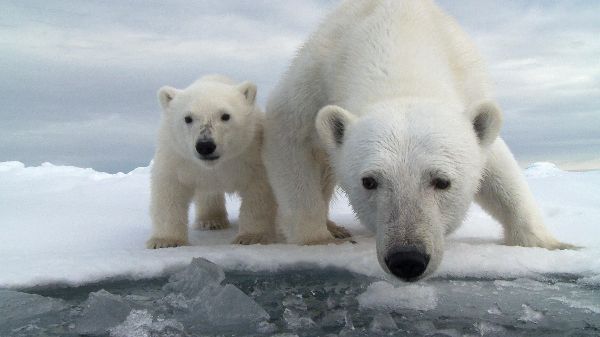The Cold Rush and the Wild Wild North

With climate change leading to the acceleration of the melting of the ice cap, issues surrounding the Arctic are becoming increasingly important. The future of the Arctic will require a delicate balance between the development and exploitation of the region and its conservation.
The Arctic Is the Future El Dorado
In 2012, the Arctic's ice cap melted to its smallest size ever recorded, covering 24% of the size of the Arctic Ocean, less than half of what it was in the 1970s when satellites began tracking the area. The interest of states in the region have increase rapidly, as the Arctic not only harbors many natural resources, but the disappearance of the ice cap is opening new lucrative maritime routes.
It is estimated the Arctic holds 13% of undiscovered conventional oil resources and 30% of the undiscovered conventional gas resources. Greenland is also stirring desires from around the globe as its harboring under its ice sheet many rare earth elements, materials essential to build computer, phones and many other modern goods. As of today 90% of the world's reserves are controlled by China and many countries are looking for alternative supply.
As for the first time, with much as 40% of the Arctic sea free of ice multiple summers in a row, industrial fishing is becoming a viable option. Same thing with the new maritime routes that are now available to shipowners. As 90% of the world trade is done by sea, using the northern sea route, which reduces the length of voyage between Europe and Asia up to 40% compared to using the Suez Route, could become between 2025 and 2050 a major maritime route.
The Arctic Environment Remains Hostile and Widely Unknown
The exploitation of the natural resources in the region, especially oil and gas, will remain challenging and very costly for many years. The harshness of the winter and the remoteness of the region makes the extraction of resources nearly twice as costly than other in regions of the world. However, as gas prices keep rising, the interests in the Arctic is unlikely to diminish.
The region's fishing ecosystem remains largely unknown and the exploitation of the fish is something many scientists warn could have disastrous impacts if it remains unregulated. So far conservation efforts have been centered on the mammals of the region such as seals and polar bears, but scientist warn over-fishing in the region would affect the entire ecosystem. In 2012, more than 2,000 scientists have called on Arctic countries to agree on a moratorium on industrial fishing until enough data is gathered to organize a robust management system.
The same reasoning is applicable to maritime transportation. The Arctic Ocean is currently in pristine condition and scientist have no data on how an intense maritime activity in the region would affect the it and its sea life.
A region with an uncertain status
Whether at a national or international level, the development of the Arctic region is on everybody's agenda, although the rules are far from being set.
At an international level, contrary to the Antarctic which is regulated by a specific treaty imposing peaceful use of the continent and freezing all territorial claims, the Arctic has not been accounted for.
The Arctic is regulated under the UN Law of the Sea convention that gives rights over the ocean to neighboring countries up to 200 nautical miles from their landmass and up to 350 nautical miles of continental plates. Many disputes over the delimitation of maritime boundaries and continental shelf remain between the Arctic nations and claims will become more archly disputed as more proof of the arctic potential arise.
One of them, which is of great importance for the whole world is the control over the different maritime routes. Indeed, many arctic shipping routes cross sovereign waters, and contrary to other international straights such as the Straight of Hormuz, where the question of the right of passage as been settled in the Law of the Sea convention, uncertainty remains for the Arctic. The routes cannot necessarily be used today, but as an ice free summer lengths, disputes will intensify.
The Arctic Council, an intergovernmental forum between the eight Arctic countries which, in the past have dealt in the past with minor issues such the census of the arctic fauna, has become the trendy club that everybody wants to join. The European Union, China, Japan and South Korea are on the waiting list to become observer states, allowing them to give their perspective on the development of the region.
Even at the national level, each Arctic country is facing difficult questions. The balance between development and conservation of the arctic region as well as the distribution of the roles with the indigenous population will need to be addressed before we see any real progress being made.
The cold rush has started but states have enough time to set rules that will protect everybody's interest and avoid the chaos that previous gold and other "economic" rushes have dealt with.





